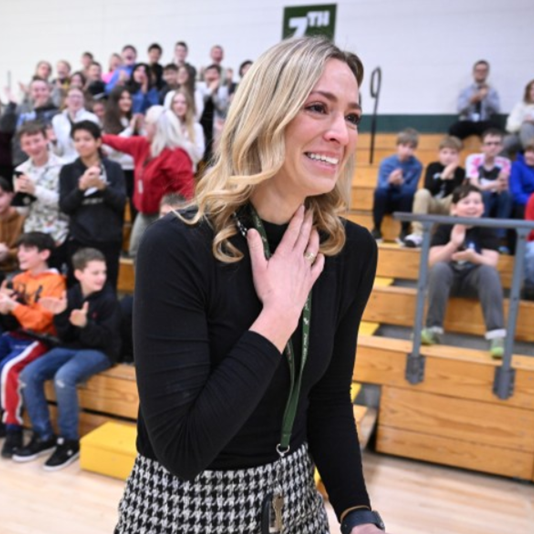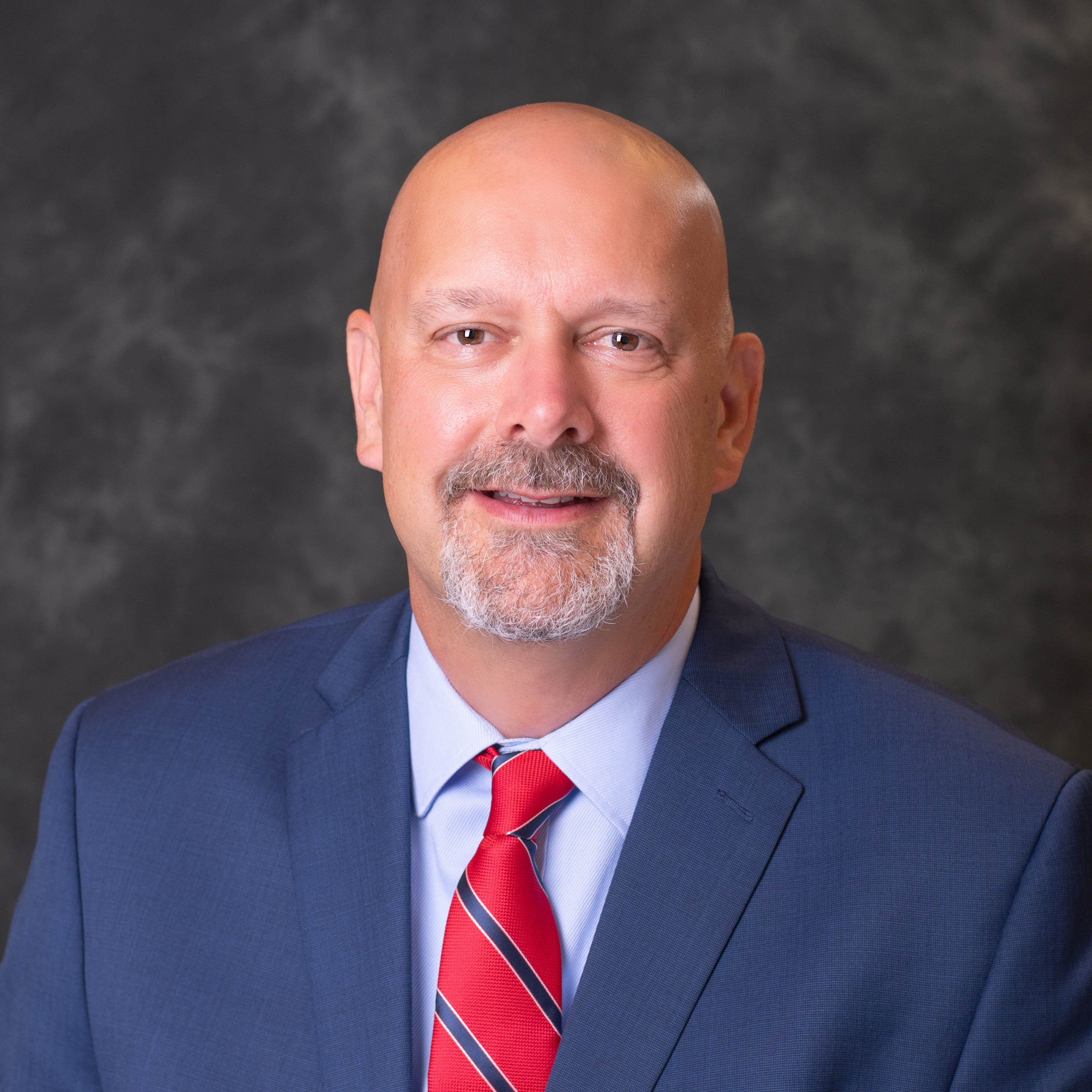For this teacher, math+marathons=life lessons
By Brenda Ortega
MEA Voice Editor
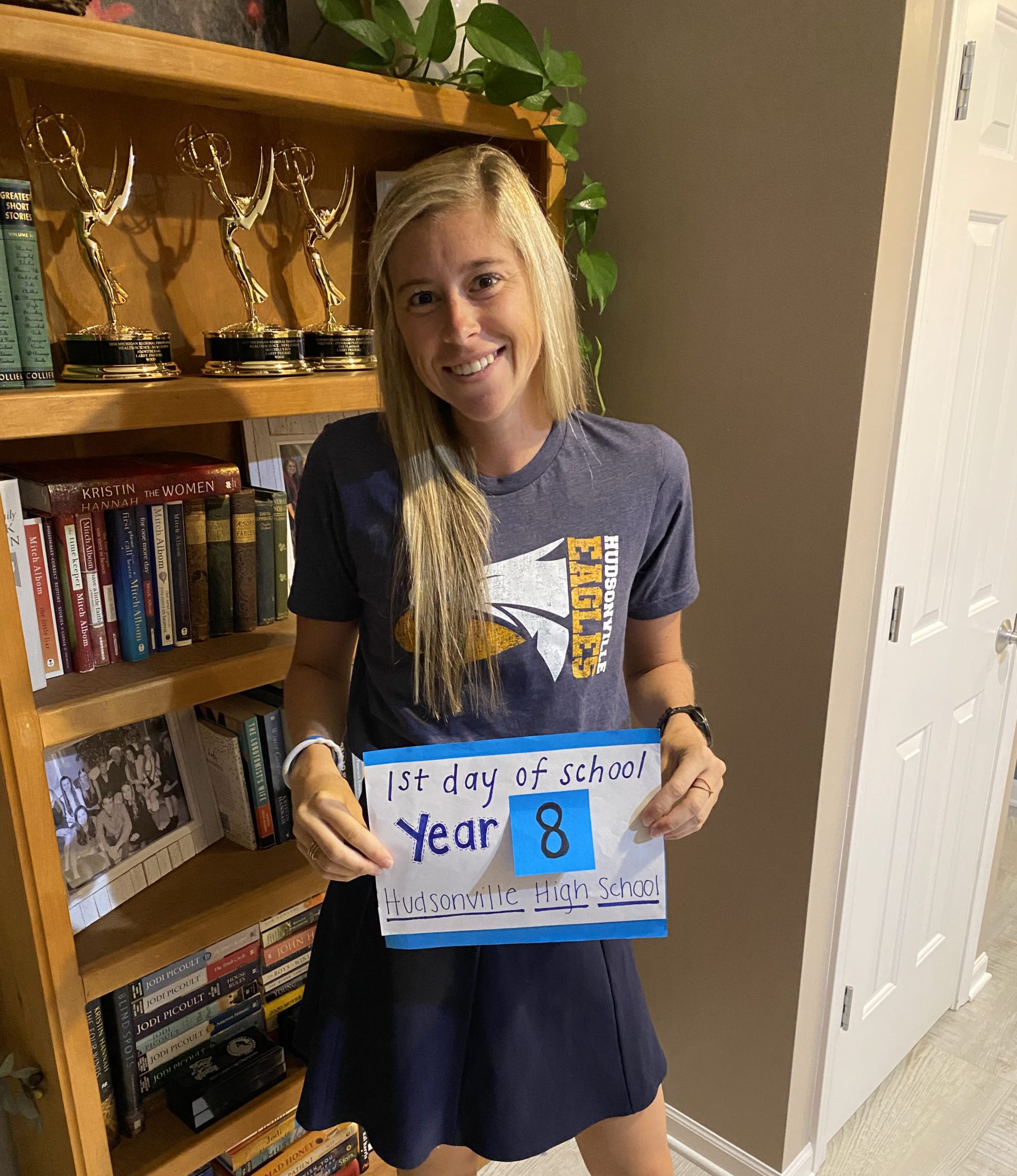
MEA member Raychel Figurski uses humor and encouragement to help her Hudsonville math students learn to trust that hard work pays off—a philosophy she lives as a distance runner pursuing her goal of completing the world’s six major marathons despite big obstacles in her path.
“I keep reminding them, ‘If we put in the work, we get where we want to be,’” Figurski said. “For me it’s just positivity and encouragement and slow progress. But then as the year goes on, their confidence grows and they start to see, ‘Oh, I can do this. I can do hard things.’”
In November she also took on a hard thing: running the New York City Marathon after undergoing bilateral hip surgeries and a knee surgery in a space of nine months during the 2022-23 school year. She was one of 50 teachers nationwide selected for entry by TCS, the marathon’s title sponsor.
Sadly Figurski didn’t get her dream finish. Between miles 14 and 15, she was hobbled by a strained hamstring.
“The first thing I thought was, Oh no! I’m going to have to drop out; I can’t even run normal—I won’t make it another 10-and-a half or 11 miles with a pulled hamstring. I was coming down this hill and about to turn into Manhattan.
“The next thing I thought was, No! You have to finish this. You told your students you can do hard things if you’re willing to put in the work, even if you’re dealt bad cards. So I kind of hobbled and walked a lot and it wasn’t pretty, but I got to the finish line.”
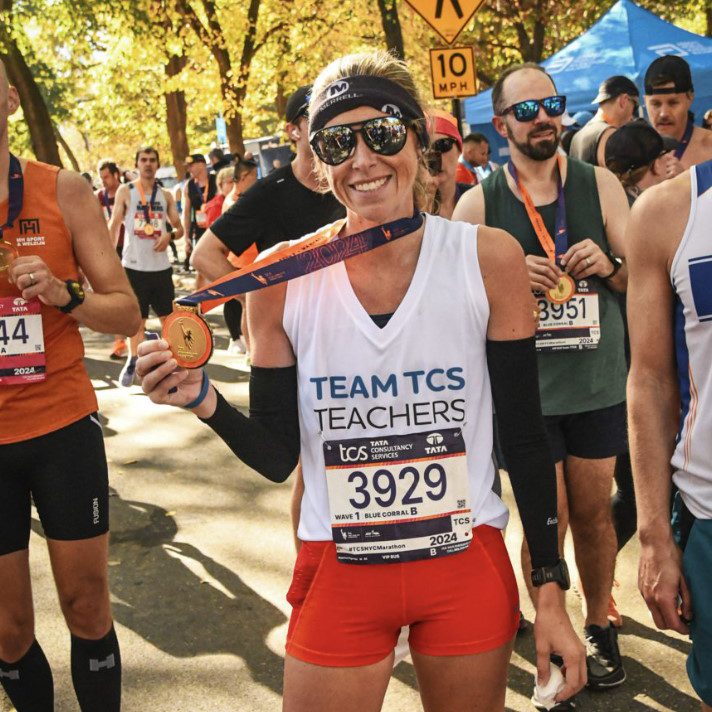
With no remaining leave time at work, Figurski remarkably returned to teaching duties the next day at Hudsonville High School where she teaches Advanced Placement (AP) Calculus and Pre-Calculus along with Algebra I.
“Before the race I had told them, ‘Hey, I’m going to need you guys to be nice to me! My flight gets into Grand Rapids at 11 p.m. and school starts at 6:30 a.m., so I might need some help.’ And they were so sweet and awesome.”
Figurski draws teaching inspiration from an educator she had growing up—Nancy Triezenberg—who made AP Calc seem fun and easy: “When I took the AP exam at the end of the year, I remember getting to the end and being disappointed because I was already done.”
The humor Figurski deploys in class is cheesy, she says. For example, she borrows the phrase “don’t mess with Texas” as a mnemonic device to help students remember the chain rule for derivatives. “It’s so funny, because we’ll be going over a test and someone will realize their mistake and be like, ‘Oh no—I messed with Texas!’”
And she offers end-of-year extra credit for those who write and perform an original song that parodies calculus in a YouTube video. “All they have to do is write about calc and put it to music, but it’s fun and creative and it makes them study.”
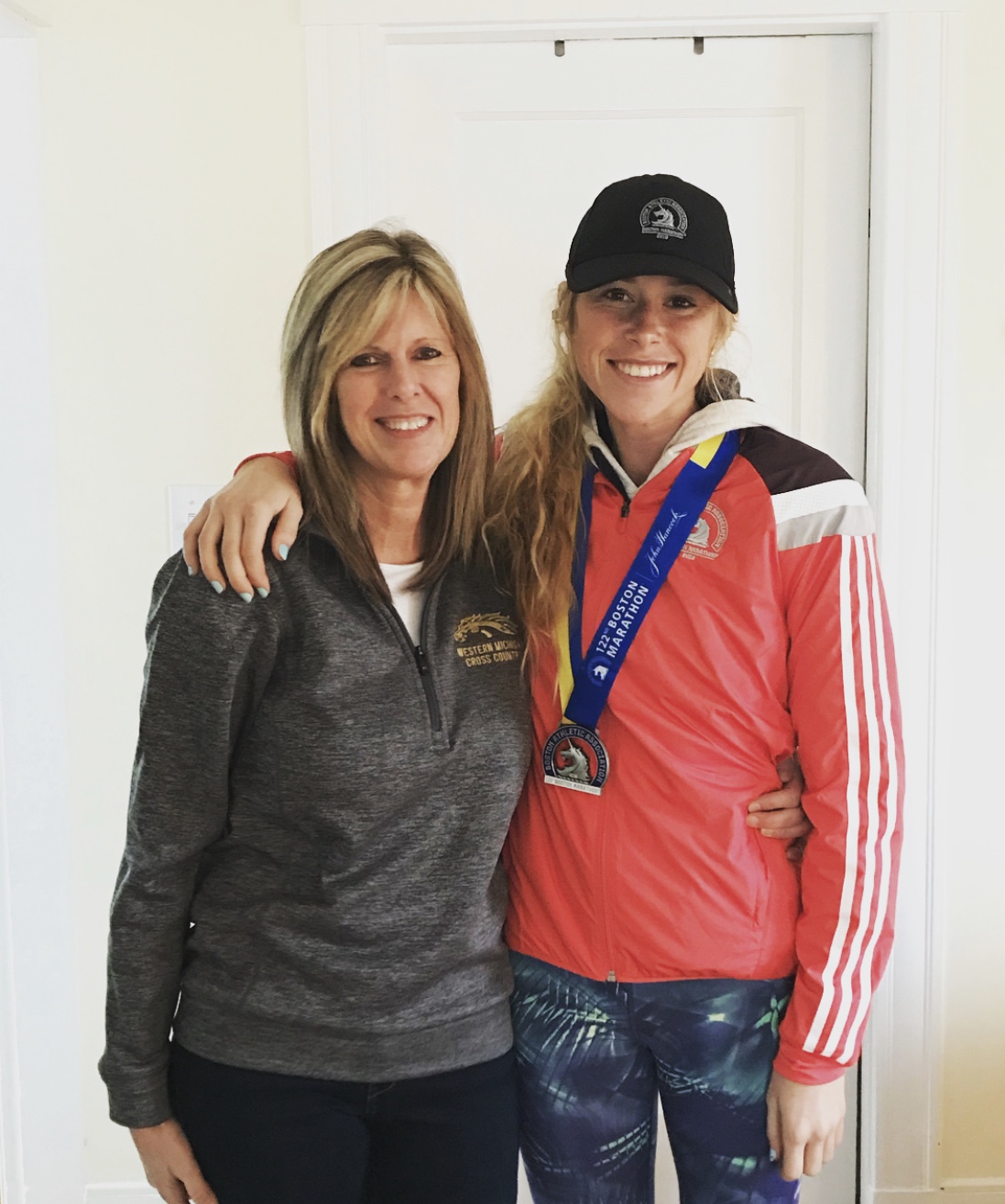
Her original role model for the job is Mom: Lisa Figurski, an MEA member eighth-grade Language Arts teacher in Grandville. She remembers as a child seeing her mom getting stopped around town by admiring former students.
“It was cool to hear those stories and see how she touched so many people’s lives,” Figurski said. “I wanted to do a job like that.”
As soon as she got her own classroom, Figurski adopted her mother’s practice of mailing letters to students when they deserve to be noticed and acknowledged. Each student receives a letter at some point in the year when effort leads to positive result in some way.
“I don’t announce it to anybody. It just gets sent home; then one day a kid will come into school and say, ‘oh my gosh, thank you so much for that card; that made my day.’ And I’m like, ‘that’s the whole point.’
“I can’t have one-on-one conversations with 100 kids every day, so this is my way of saying, ‘I’m watching and I see what you’re doing; be proud of yourself—I’m proud of you. Keep going.’”
Figurski’s interest in running was spurred by the after-school program Girls on the Run in elementary school. Her mom then signed her up for middle school cross country in sixth grade, and Figurski went on to medal at the first meet—slightly surprised to learn she was fast, she said.
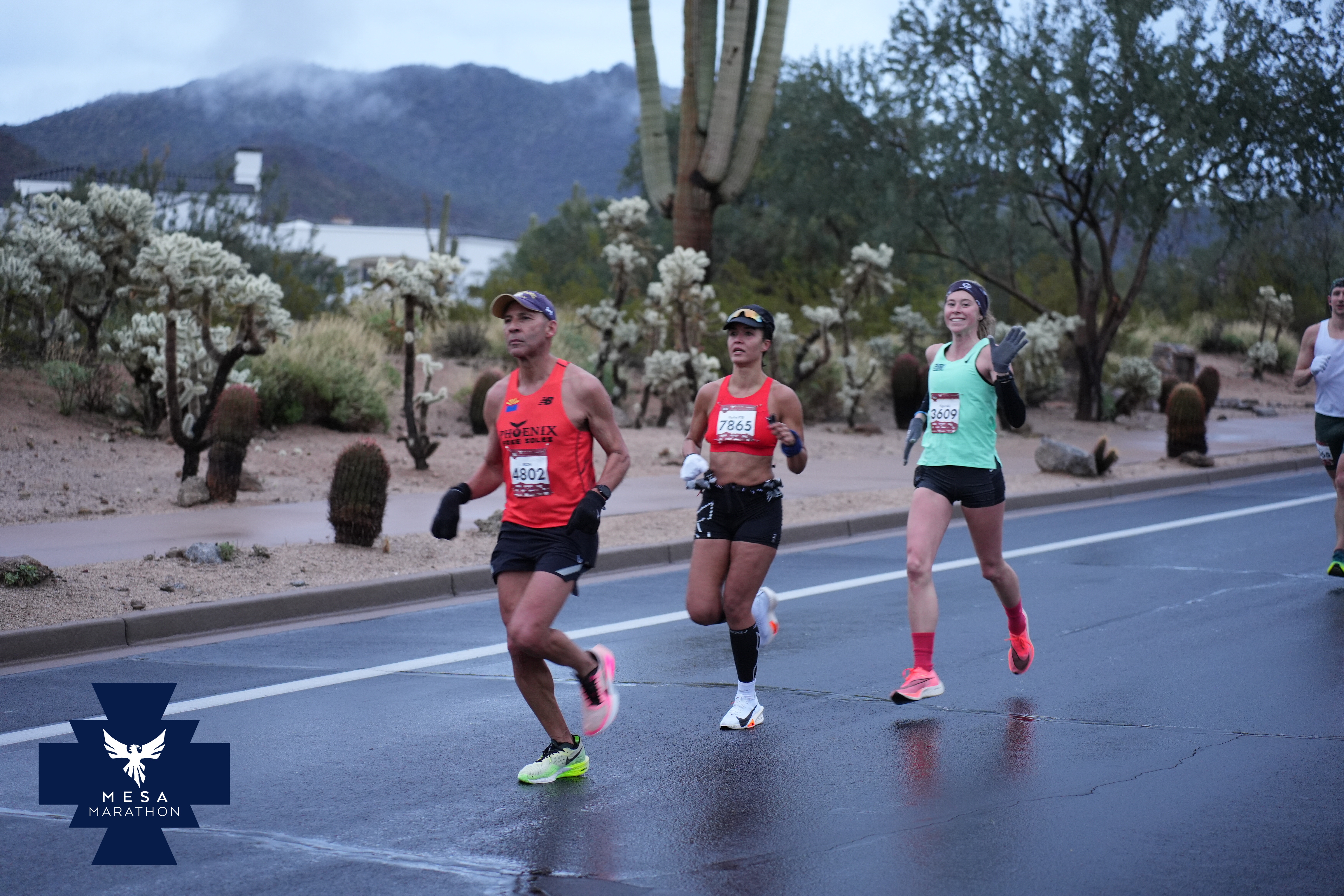
She ran cross country and track in middle school, four years of cross country and two years of track in high school—and competed in both sports for four years at Western Michigan University. She started coaching once she began her teaching career.
At the same time she shifted her attention to running marathons, the next frontier for post-graduate distance runners. “I quickly realized how effort—that work ethic—affects you more in the longer distances like the marathon. You can’t just show up and run a marathon; I thought I could.
“The first time I ran one, I didn’t really train for it, and I paid for it big-time! It was honestly one of the worst experiences of my life. I couldn’t move for two weeks after.”
That was the Grand Rapids Marathon in 2016, just after graduating college. With training, in her next outing, Figurski ran fast enough to qualify for the Boston Marathon—where she raced in 2018. She also completed the Chicago Marathon and now competes as part of elite racing team Grand Rapids Distance Elite.
Then the mystery pains started. Although it would eventually be diagnosed as a hip-related issue, she never felt hip pain. “I was getting pain in different places, like in my back, in my thigh, in my knee.”
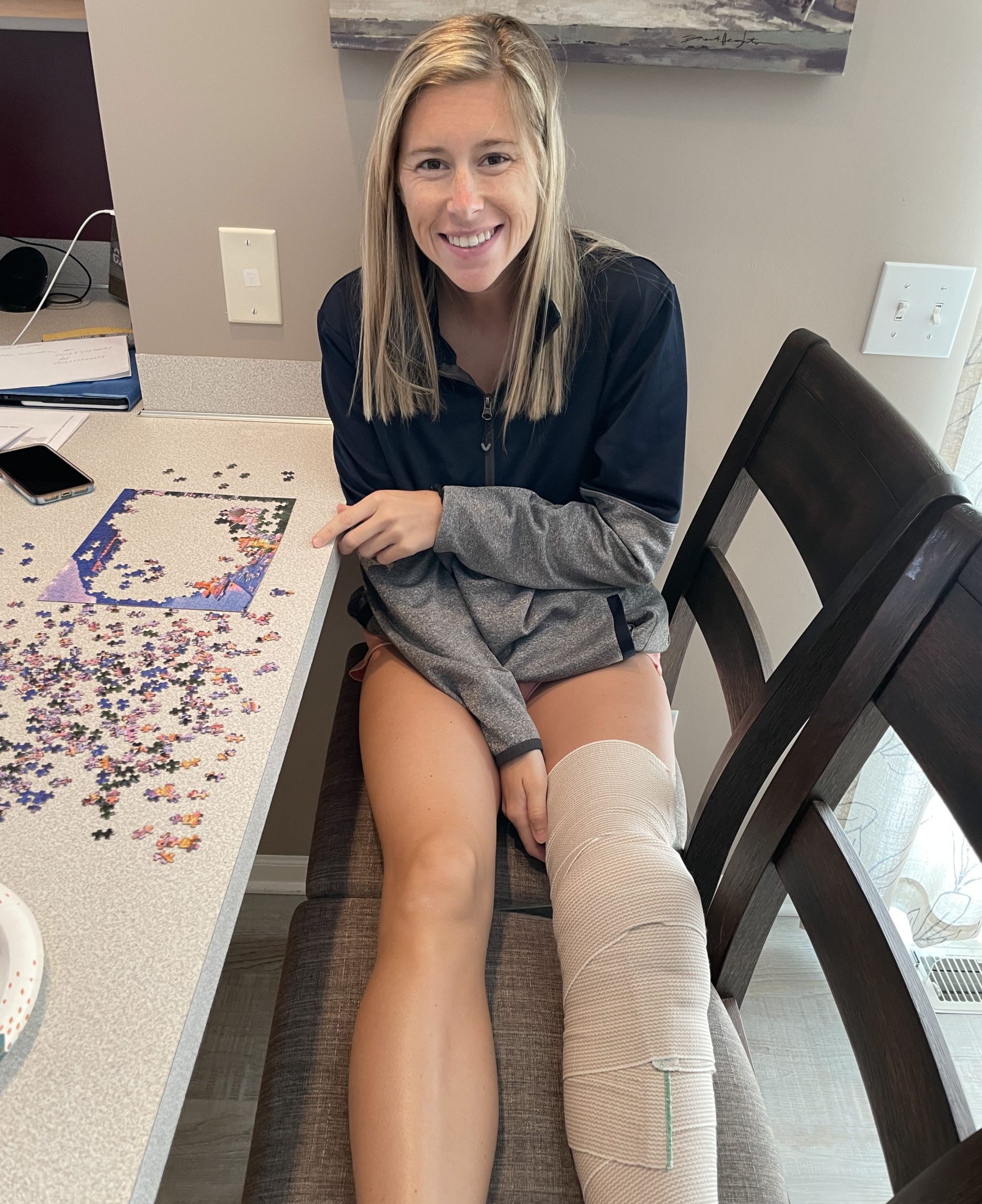
The problem involved extra bone growth on the head of the femur on both sides, which tore cartilage called the labrum. Two separate arthroscopic surgeries in fall of 2022 reshaped the femurs and repaired the cartilage.
An unrelated knee injury required surgery on May 30, 2023 – nine months after the first hip surgery – and Figurski was cleared to start training again in June. That fall she ran the Chicago Marathon a second time. This year in September she notched another major by finishing the Berlin Marathon.
Five weeks later came NYC on Nov. 3, which she had applied for the previous spring and been accepted to run as one of 50 teachers selected for Team TCS Teachers. Each year since 2018, marathon sponsor Tata Consultancy Services selects educators of all ages and ability levels from hundreds of applicants who submit essays for consideration.
“I met teachers from all over, some who’ve been teaching for 25, 30 years,” Figurski said. “They had special jerseys made for us that said we were teachers, so when we ran through the streets in New York, people would shout, ‘Yeah! Let’s go teachers!’ It was really cool.”
Just toeing the line—among a crowd of nearly 56,000 racers, so enormous it required three separate starts—then rushing over the Verrazzano-Narrows suspension bridge and running the first mile with the Manhattan skyline in her left periphery “was just breathtaking,” she said.

Still she couldn’t shake the disappointment after her return. “It’s hard when you train and you have high expectations. The hardest part is with a marathon, you can’t turn around after a bad experience and do another one the next weekend.”
The next day after her return, on Tuesday, Figurski got a lunchtime call from the office that she had a visitor. With no idea who it might be, she walked into the office and saw no one she recognized.
“And this lady stands up and walks over to me and says, ‘Are you Raychel?’ I’m like, ‘Yes.’ And she goes on to say that she saw my story in the news. She says to me, ‘I’m a runner. I’m a marathoner, and I just wanted to say congratulations. I was so inspired by your story.’
“I had never met her before, but she just ran a marathon in October at 80 years old, and she’s like, ‘Keep reaching for your goal; it will happen, you know. You’re going to do big things.’”
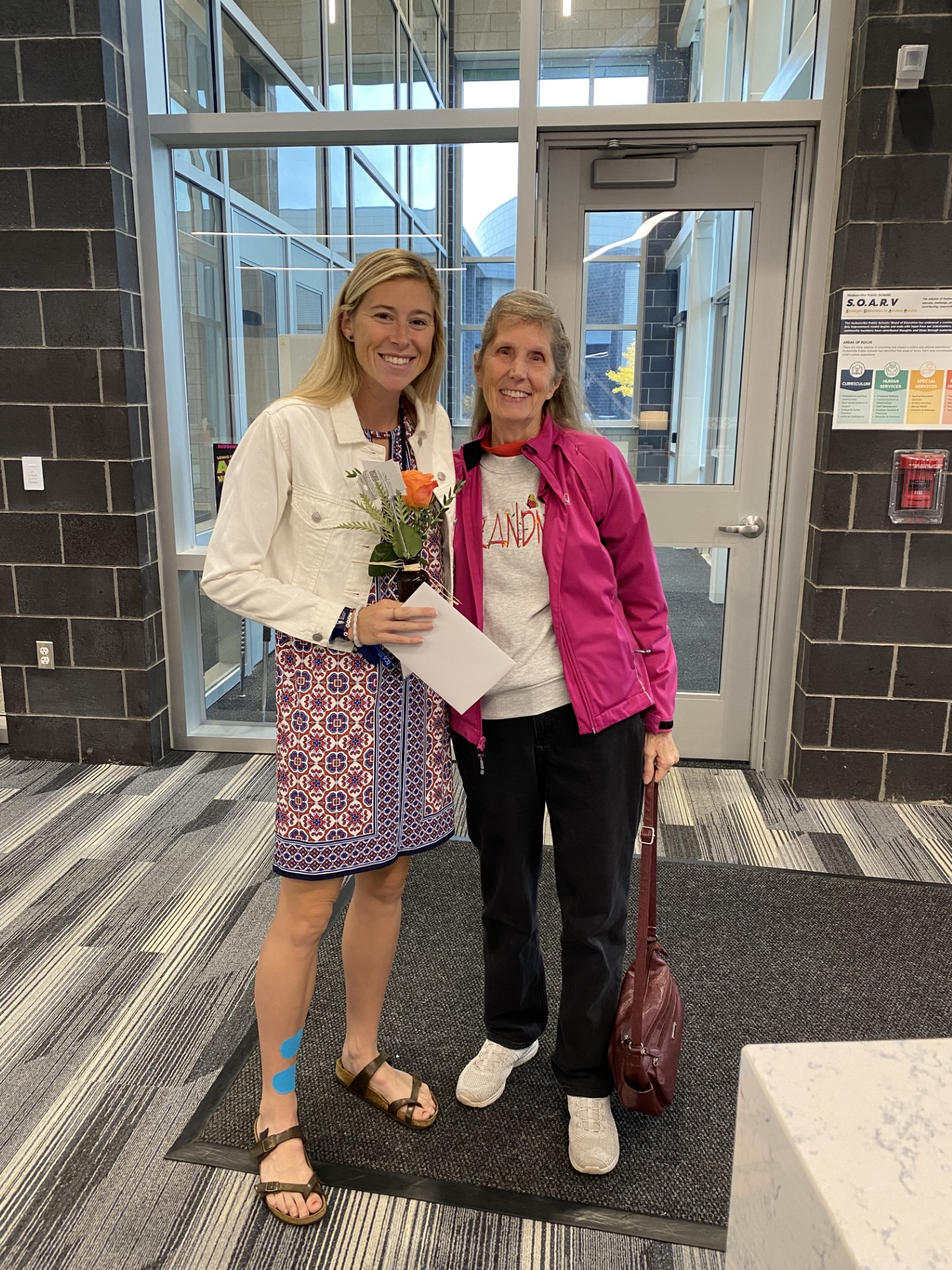
The woman handed her a greeting card and flower. Figurski struggled to keep from crying. She does have big goals and dreams: not only to finish the two remaining world majors in Tokyo and London but also to qualify for the U.S. Olympic Team Trials in 2028.
Figurski continues to nurse the hamstring, but her perspective changed after meeting with the woman. “I was bummed with what happened and kind of being hard on myself about it, and then she showed up. I was like, Wait a minute. You’ve got to look at this in a different way.
“She helped me make that transition to looking at it from another perspective. I went from being upset about how the experience went to being grateful for it—and that was just amazing.”
Figurski’s next goal: getting healthy enough to start running and working hard again.


